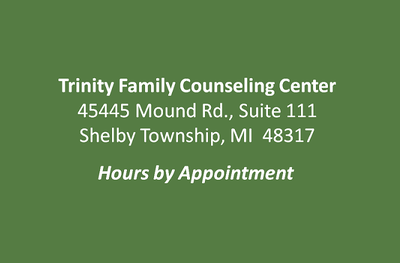Children and Adolescents
|
Kids today have got A LOT going on. The challenges they face are often preoccupying and overwhelming--on a daily basis. Not knowing where to turn or who to talk to, they sometimes make less than ideal choices for themselves. These choices can lead to anxiety, depression, anger, loneliness, and thoughts of self-harm, and can be accompanied by feelings of not being good enough, or of believing they are a disappointment to their parents, teachers, friends, and even to themselves.
These kids can either shut down and push us away, or they begin to act out in ways that reveal their limited ability to cope with their stressors. Providing a troubled child or teen the opportunity for discussion with a caring professional counselor can often be a turning point for one who is feeling confused or hopeless. As parents, we want to believe that we can help with all their problems. By the time you consider seeking the help of a professional counselor, the situation can feel like it is out of control for both your child - and you. The counselors at Trinity understand this fact, and are experienced in managing the many facets of this circumstance, as we provide a safe and supportive place in which to unravel what is going on in the life of your child. |
Counseling Insights and Articles About Children and Adolescents:
|
Child Development and Supporting Children in Today’s Churches, by Dave Papandrea
Will You Be Using Anyone’s Name Today?, by Sherrie Darnell Let’s Be Nicer to Each Other. You Go First., by Wendy Warner The Mind… The Gut… The Psyche, by Dave Papandrea Loving Your Teenage Girl Well, by Deb Toering Encourage A Child Today, by Wendy Warner Not What, But How, by Cathy Kap What To Do When Children Act Out, by Liza Hinchley Helping Our Children Return To School, by Kathy Cap |
COVID, Teens, and Social Media, by Kathy Cap
What To Expect When Your Child Is In Counseling, by Lisa Hinchey How Play Therapy With Children Actually Works, by Liza Hinchey "Whether you Think You Can Or Can't... You're Right", by Kathy Cap Understanding Your Teen's Love Language, by Wendy Warner Embracing Your Teen’s Journey to Independence, by Wendy Warner Divorce From a Child’s Perspective, by Tonya Ratliff Please Listen to Me, Don’t Dismiss Me, by Wendy Warner |






